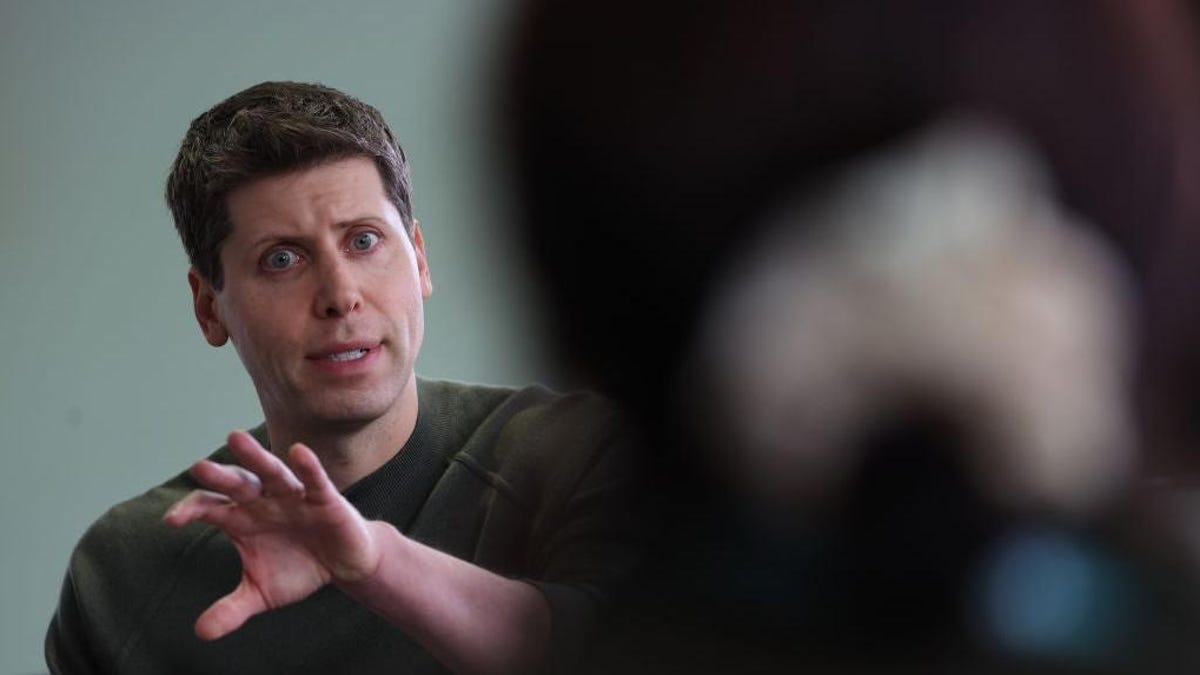
OpenAI rode a hype-fueled rocket to business leadership over the last year. CEO Sam Altman managed to put a consumer-friendly wrapper on a years-old technology and capture the world’s attention. And now, for better or worse, OpenAI is better positioned than anyone to build the tools that will save or destroy the world. Artificial General Intelligence (AGI) is the prize, what Altman recently called “magic intelligence in the sky.” If we ever get there, it may be OpenAI’s six-member board that decides if we’ve reached the singularity.
The company published a blog post last June, recently highlighted by VentureBeat. Defining intelligence is a philosophical question, not a technical one. Is ChatGPT intelligent? It depends on who you ask. When it comes to AGI, which OpenAI describes as a “system that outperforms humans at most economically valuable work,” the company’s symposium comes mostly from the world of business. “The board determines when we’ve attained AGI,” the company says.
Advertisement
At the top of the list, of course, is Altman, a star from Silicon Valley investment firm Y Combinator. OpenAI’s board of directors also includes the company’s President Greg Brockman and Chief Scientist Ilya Sutskever. Then there’s Adam D’Angelo, the CEO of Quora, and Tasha McCauley, a tech entrepreneur and robotics expert who may be best known as actor Joseph Gordon-Levitt’s wife (though that shouldn’t detract from her more serious work). The board member who’s closest to a professional thinker is Helen Toner, director of Georgetown’s Center for Security and Emerging Technology.
Advertisement
What most of these people have in common is ties to the “Effective Altruism” movement. Effective Altruism posits that the solution to humanity’s problems is for people with good intentions to get extremely rich and then donate the money to good causes. Unlike the bad rich people who’ve made the world unpleasant, Effective Altruists aim to be good rich people, and they know best how to spend the world’s resources. The most famous Effective Altruist is noted criminal Sam Bankman-Fried, former head of FTX, which traded in fraud and sometimes cryptocurrency.
Advertisement
Post FTX, many have tried to distance themselves from the movement. OpenAI told VentureBeat, “None of our board members are effective altruists.” Strange, then, that Toner published a blog on the Effective Altruism website back in 2020, explaining how to stay motivated under the pressure of knowing that you, personally, are responsible for all of the world’s problems. Or, for example, if none of the board are Effective Altruists, you might ask how McCauley ended up on the board of Effective Ventures, which funds the Center for Effective Altruism. One should also ignore every Google result for the words “Sam Altman Effective Altruism” dated before 2022; otherwise, you might get confused. OpenAI did not immediately respond to a request for comment.
It’s in OpenAI’s interest for you to believe that AGI is just around the corner and that its engineers will be the ones to unleash it upon the world. There are also calls for a nice cold glass of skepticism.
Advertisement
For one, Generative Pre-trained Transformers, or GPTs, are not an OpenAI invention. They’re also not new. GPTs were invented at Google in 2017. OpenAI’s major innovation was to create a consumer-friendly interface and release it to the public. There’s little reason to assume AGI will come from OpenAI aside from the fact that the company is getting a lot of investment right now—especially because the tens of billions of dollars people are handing the company aren’t nearly enough.
“There’s a long way to go, and a lot of compute to build out between here and AGI,” Altman said in a new interview with the Financial Times. “Training expenses are just huge.”
Advertisement
But even if you had all the money in the world, it wouldn’t necessarily be a safe bet that we’re any closer to AGI than we were back when people at other companies created GPTs almost 7 years ago. ChatGPT is amazing, but it doesn’t even begin to approach a tool that’s better than humans at most tasks. It’s possible, perhaps even likely, that there is a hard technical limit on the capabilities of GPTs. Our current generation of large language models may be a dead end if the goal is AGI.
Forget AGI, OpenAI can’t even tell you when it will release its next major software update. Altman told the Financial Times that OpenAI is working on ChatGPT-5, but “he did not commit to a timeline for its release.” He couldn’t even say what ChatGPT-5 would be useful for. “I can’t tell you ‘here’s exactly what it’s going to do,’” Altman said. “It’s like a fun guessing game for us.” The company’s operating procedure so far is to pump its models full of data and figure out what they’re good for later. So far, ChatGPT is very good at writing limericks and telling lies.
Advertisement
However, when AGI is here, undoubtedly thanks to Sam Altman’s leadership, he’s confident it will be very good for business. “The amount of business value that will come from being able to do that in every category, I think, is pretty good,” he said. It may not be so great for you, sadly, at least not in the short term, but Altman has a plan for that, too.
In an interview from his ranch earlier this year, Altman told the New York Times that his plan is for OpenAI to “Capture much of the world’s wealth through the creation of AGI and then redistribute this wealth to the people.” Seriously. He could not, however, articulate a plan for how he’s actually going to redistribute all that wonderful money.
Advertisement
Like most of Altman’s plans, he’s still figuring that one out. But don’t worry, the people running OpenAI, who are definitely not Effective Altruists, promise they’ll take care of you.
Services Marketplace – Listings, Bookings & Reviews